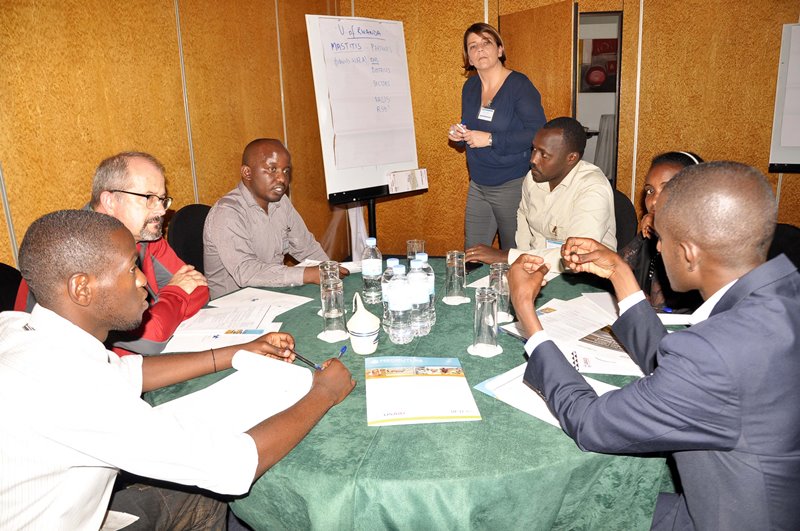Source: IFAS Blogs
Students involved in research projects receive more than financial support for their degrees from the Feed the Future Innovation Lab for Livestock Systems. I am being mentored in writing proposals and protocols, data collection and analysis, statistics and bio-safety. I plan to graduate in November 2018 with a master’s degree in animal production from the University of Rwanda, and I am one of the two graduate students working on the mastitis project led by Jean Baptiste Ndahetuye.
I helped to collect baseline data from Milk Collection Centers (MCCs) across Rwanda to identify gaps that lead to decreased milk quality and safety in the value chain. Administering questionnaires on milk handling practices with nearly 400 farmers in 8 MCCs, I experienced firsthand the challenges faced by dairy farmers. I also analyzed milk for cell counts, antimicrobial residues, and total bacteria and coliforms as hygienic indicators.
The project found that total bacterial counts increased from farm to their respective MCC, which indicates multiplication during transport due to various factors, including the use of plastic containers in milk delivery and up to 4 hours in transportation without refrigeration.
University of Rwanda’s Alice Ingabire, right, with her mentor Jean Baptiste Ndahetuye participated in an agricultural show in July.
University of Rwanda’s Alice Ingabire, right, with her mentor Jean Baptiste Ndahetuye participated in an agricultural show in July.
After thoroughly understanding gaps in the milk chain, I was involved in developing training materials and participated in educating the 226 attendees of workshops on “Training farmers in best practices for good udder health and milk quality and safety,” which were held at eight MCCs across Rwanda. By teaching, I increased my confidence in the areas of milk safety, animal disease management and human nutrition. The trained farmers have reported greater awareness, for example, of hygienic challenges associated with plastic materials in comparison with stainless steel cans, and linkages of subclinical mastitis to milk quality, as well as human health.
These findings and other challenges are inspiring me to improve critical analysis and evaluation of the milk dairy chain in Rwanda for needed improvement. Through active participating in the project, I hope to exercise my skills and reach my highest professional potential as a female, young scientist in Rwanda.

